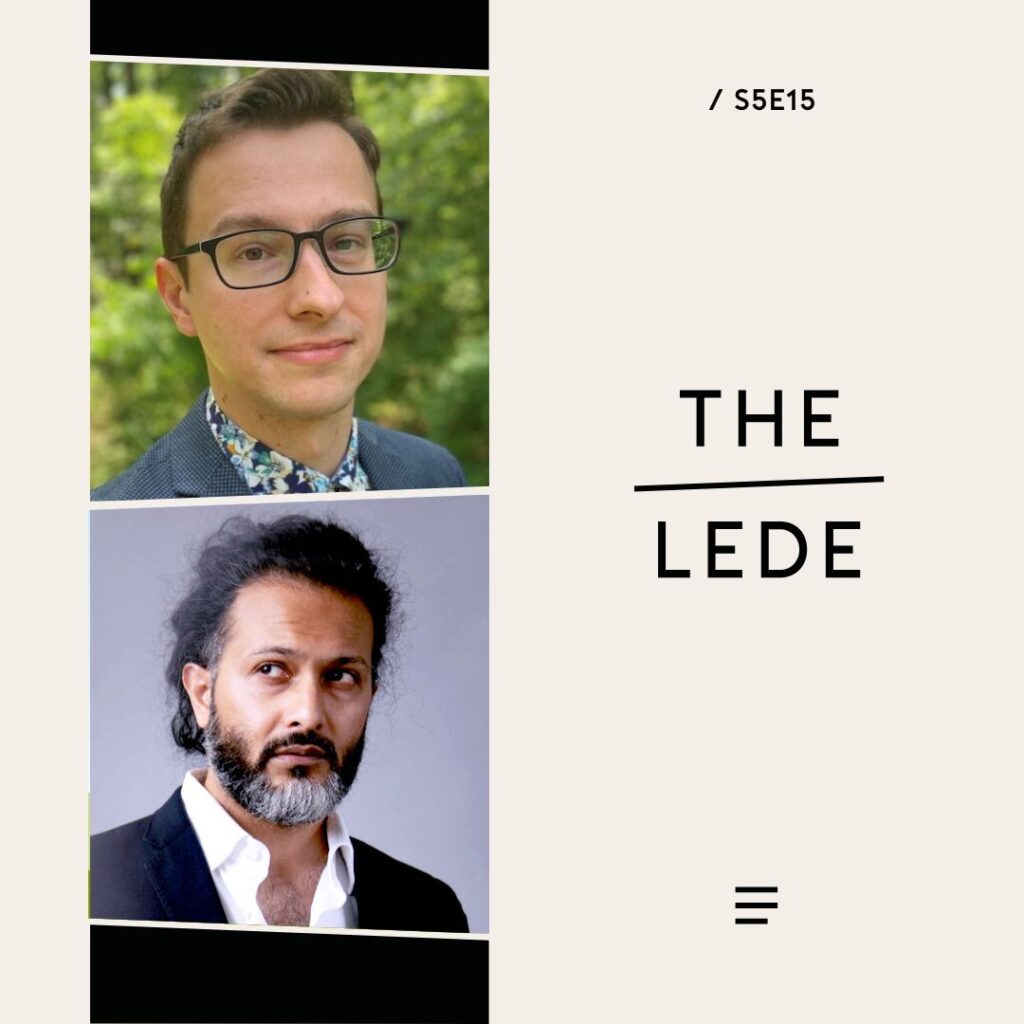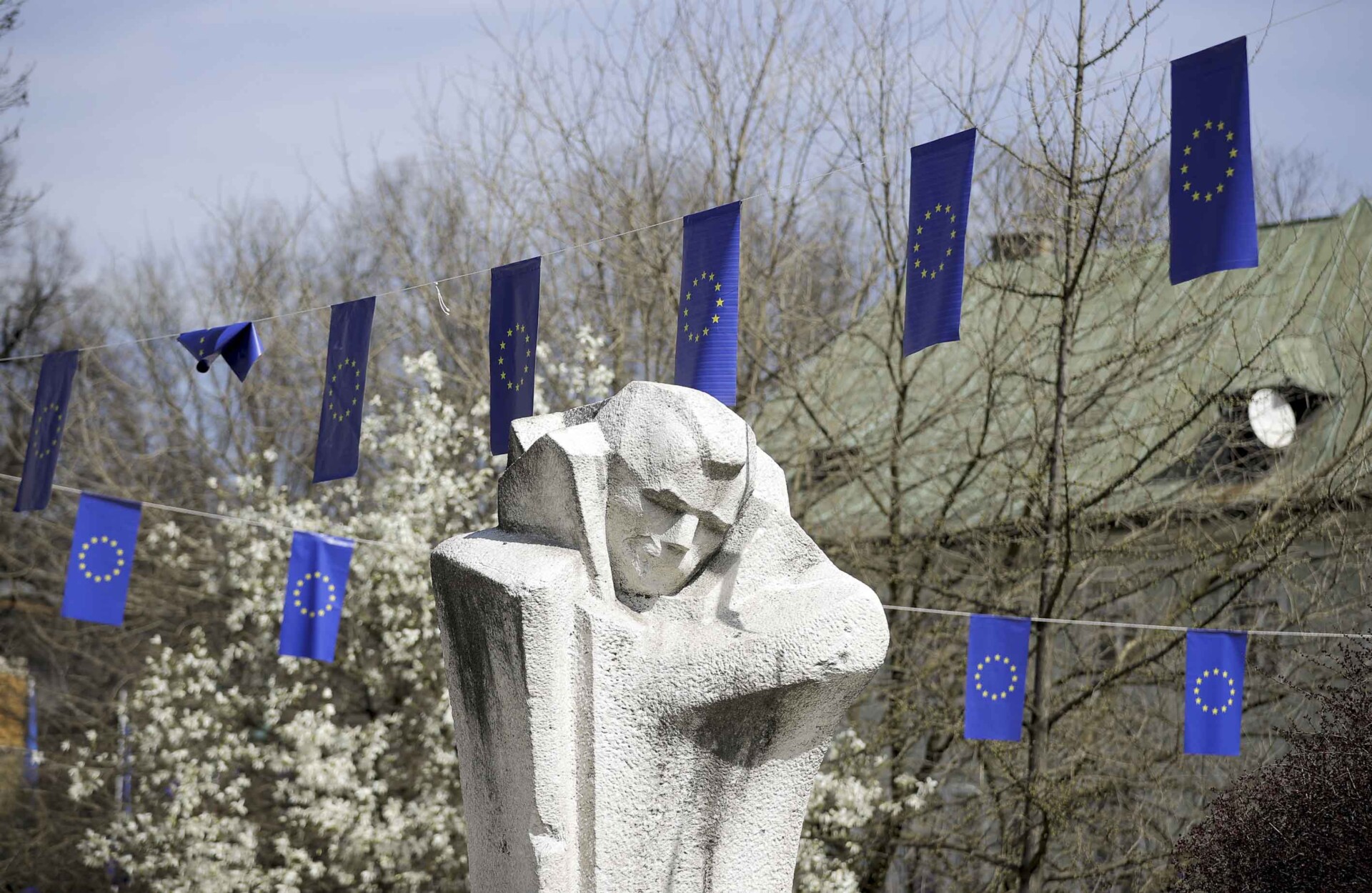Hosted by Faisal Al Yafai
Featuring Jasmin Mujanović
Produced by Finbar Anderson
Listen to and follow The Lede
Apple Podcasts | Spotify | Podbean
The West, thinks Jasmin Mujanović, has fundamentally misunderstood Bosnia and Herzegovina. “The key issue was that the very idea and the very concept of Bosniak national identity was very poorly understood, in particular in the West, but also, honestly, to some extent in Bosnia,” he tells New Lines’ Faisal Al Yafai on this week’s episode of The Lede. “I reject this term ‘Bosnian Muslim,’ which continues to be quite popular in the political West.”
In his new book, “The Bosniaks: Nationhood After Genocide,” Mujanović sets out his argument on why Bosniaks have been historically misunderstood, and his vision for how to bring the various ethnic groups in Bosnia — where Bosniaks now form the majority — together into a more cohesive whole.
“Why do you not help us build these European-style democracies from day one, rather than tying bricks around our feet and then tossing us in the river and saying, ‘Boy, you guys certainly seem to have a hard time getting along.”

Mujanović points out that in traditional commentaries on the Bosnian War of the 1990s, the country’s main ethnic groups were divided into, respectively, Bosnian Serbs, Bosnian Croats and Bosnian Muslims. “The obvious problem with this categorization is that we’re using two ethnic labels, and then for the third group we’re using a religious marker. It also suggests that identity for this community is synonymous with religiosity. … It also erases what actually is the most significant aspect of Bosniak national identity, which is their categorical belief that they are an indigenous Bosnian people.”
The Islam of the Bosniaks, Mujanović argues, is often used by outsiders to group them with adherents of Wahhabism in Saudi Arabia, or even “the horrors that we saw during the so-called Islamic State.” Yet Bosniaks’ Islamic reality, he says, is unique to themselves and often markedly secular.
This refusal to consider the Bosniaks as part of Europe, he says, comes down to “an overwhelming belief that Islam and Muslims are somehow alien to Europe, much as there’s a belief that people of color more generally are alien and foreign to Europe — neither of which, incidentally, is true.”
Mujanović strongly criticizes the Dayton Accords, the peace agreement that brought to an end the Bosnian War in 1995, as he argues they entrench ethnic division. “Now is the moment that you need to see the writing on the wall and move towards a liberal democratic regime, because that is what is going to ultimately provide not just more security for minority communities in Bosnia Herzegovina, but ultimately will actually increase their rights to representation,” he says, making the point that many members of minority groups have voted with their feet for such systems elsewhere.
“They have already voted for these regimes because they have en masse moved themselves and their families to societies in which they are a part of minorities under liberal democratic regimes, from Germany, the Netherlands, Ireland, Sweden, Canada, where they have no guaranteed political representation other than as citizens and participants in a kind of broad-based, open, liberal democratic regime,” Mujanović argues.
He has little patience for American or European governments advising Bosnia and Herzegovina to pursue anything other than a liberal democratic future. “Why is it that when you come to the Balkans, you offer us 19th-century imperial partition schemes, but then tell us that actually what you want us to do is to join the community of European democracies,” he asks. “Why do you not help us build those European-style democracies from day one, rather than tying these bricks around our feet and then tossing us in the river and saying, ‘Boy, you guys certainly seem to have a hard time getting along.’”


